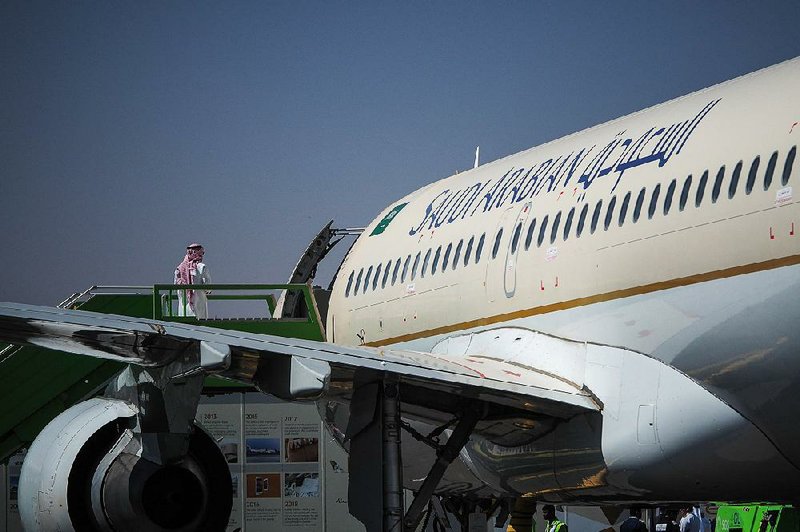Airbus SE secured a $35 billion jet deal from China during a state visit by President Xi Jinping to the French capital, dealing a fresh blow to Boeing Co. as it grapples with the grounding of its best-selling jet.
The mammoth order consists of 290 A320-series narrow-body planes and 10 A350 wide-bodies, Toulouse-based Airbus said after the transaction was announced in Paris on Monday. The deal's value is almost double that touted by French President Emmanuel Macron in January 2018 during a trip to Beijing.
The Airbus deal comes while Boeing's own 737 Max narrow-body -- the chief global rival to the A320 -- has been idled following two fatal crashes in five months. The U.S. plane-maker is also struggling with fallout from a China-U.S. trade war that has seen sales to the Asian nation dry up just as Airbus bolsters its position with an offer to expand production facilities in Tianjin.
China has become the world's most important aviation market as its fast-growing middle class spurs demand for travel. The country has traditionally sought to keep a balance between the two Western plane-maker as it seeks to jump-start manufacturing on its own soil, but Chicago-based Boeing's order prospects have been complicated by the trade clash.
"I would see this as part of broader trade discussions," said Rob Stallard at Vertical Research Partners. "For the Chinese to put tariffs on Boeing aircraft would be nuclear, but you can send messages in other ways. This tells the Americans that you have got to play nice if you want us to reciprocate."
Macron originally put the value of a likely order at $18 billion. A firm order failed to materialize last year despite a second French state visit in June and a delegation of top Airbus executives in September.
The deal announced in Paris will include both NEO -- for new engine option -- and so-called classic or CEO versions of the A319, A320 and A321, though the majority will be A320neos and A321neos, according to officials. China typically orders planes in large batches and allocates them to airlines later.
The latest A320neo model has a list price of $110.6 million and the A350-900 sells for $317.4 million before discounts.
Airbus' incoming chief executive officer, Guillaume Faury, said at the press conference that construction of the A320s will take place both in Tianjin and Europe, adding that the deal is "a sign of the confidence" from China. Macron called the transaction "an excellent signal."
"We are honored to support the growth of China's civil aviation with our leading aircraft families," Faury said. "Our expanding footprint in China demonstrates our lasting confidence in the Chinese market and our long-term commitment to China and our partners."
China will need 7,400 new passenger and freighter aircraft in the next two decades, representing almost 20 percent of total global demand, according to Airbus estimates.
The purchase provides a boost for Faury, who takes over from Tom Enders in April. Airbus sales have had one of the slowest starts in the past decade, with the plane-maker registering 103 cancellations and just four new orders in the first two months.
Fifteen business deals on energy, the food industry, transport and other sectors were signed in the presence of Xi and Macron on Monday at the presidential palace in Paris, in addition to other bilateral agreements.
Both countries agreed on a protocol allowing French exports of chicken meat to China. The country last year opened its market to French beef products after Macron's state visit in the country in January 2018.
Airbus shares pared declines of as much as 1.7 percent earlier in the day to close 0.5 percent lower in Paris.
Information for this article was contributed by Benjamin Katz, Gregory Viscusi and Helene Fouquet of Bloomberg News; and by by Sylvie Corbet of The Associated Press.
Business on 03/26/2019
